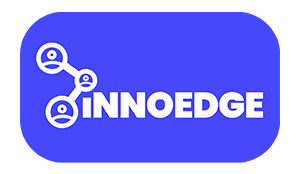As artificial intelligence (AI) becomes integral to data-driven business strategies, organizations are handling larger volumes of sensitive data than ever before. This reliance on cloud-based AI tools for data processing opens up serious privacy risks, as many AI models use personal data for training and insights. In response, global data privacy regulations like the EU’s GDPR and the upcoming EU AI Act impose strict limitations on data usage, aiming to protect individuals from misuse of their personal data.
Without proactive oversight, companies leveraging AI risk exposing customer data to unauthorized access or even manipulation. A 2024 Google report emphasized the need for businesses to navigate growing privacy concerns with strong governance frameworks. With stringent global standards looming, companies are expected to manage how AI systems handle, process, and protect personal data. This article explores key risks in cloud-based AI services, practical strategies to safeguard data, and how to stay compliant as regulatory landscapes evolve.
Major Privacy Risks in Cloud-Based AI
1. Data Collection and Transparency Gaps
AI models rely on vast, often sensitive, datasets, from names and addresses to financial and health records. Although companies might anonymize data, AI’s ability to re-identify information by analyzing patterns still poses privacy risks. Public data used to train AI models can inadvertently include personal details, risking violations of the GDPR, which mandates transparency in data collection and use (IBM SecurityIBM – United States).
2. Data Leakage and Unintentional Sharing
AI systems can unintentionally expose sensitive information. High-profile incidents have shown that AI tools might inadvertently share customer information, as seen with large language models disclosing user data through error-prone prompts. Such incidents emphasize the importance of comprehensive data protection protocols across AI models (EY US).
3. Insufficient Governance and Accountability
Many businesses lack a structured approach to AI governance. An EY study found that only 35% of organizations have implemented an enterprise-wide AI governance framework. This gap leaves room for unauthorized data use and breaches, which could lead to severe regulatory penalties. Companies must ensure clear accountability for AI-related decisions to build customer trust and avoid compliance risks (EYEY US).
Strategies for Navigating AI and Data Privacy Compliance
1. Implement Privacy-Centric Data Collection Practices
Businesses need to evaluate their AI systems to ensure that only essential data is collected and processed. The EU AI Act mandates that organizations handle AI data responsibly, following principles similar to GDPR’s purpose limitation. Risk assessments should be conducted regularly to analyze how AI algorithms could impact privacy, particularly for high-risk applications like facial recognition or financial profiling (Cloud Security AllianceHome | CSA).
2. Enhance Transparency and User Control
AI-based applications should clearly inform users about how their data is collected, used, and retained. Google’s compliance team advises companies to obtain explicit user consent for data processing, especially in areas like marketing and personalized advertising. Organizations must also offer easy data access, correction, and deletion options to comply with privacy laws worldwide (Google Cloud blog.google).
3. Adopt Robust Data Governance Frameworks
Adopting frameworks such as the NIST AI Risk Management Framework or creating custom governance policies can help organizations stay compliant with diverse regulatory requirements. Organizations should maintain auditable records, conduct Data Protection Impact Assessments (DPIAs), and continuously educate stakeholders on privacy obligations. Such measures will help ensure that AI processes remain transparent and secure (NISTIBM – United States).
4. Secure Your AI Data Through Encryption and Access Controls
Encrypting data in storage and during transmission is crucial for cloud-based AI tools. Multi-layered access controls further secure sensitive information from unauthorized users. Regularly updating security protocols, particularly for cloud services that process personal data, is critical to preventing unauthorized access and data theft Home | CSA.
Key Takeaways
- Know Your Data: Understand which personal data your AI systems use, and align data collection practices with regulatory standards.
- Transparency Matters: Make it clear to users how their data is being processed, and give them control over their information.
- Prioritize Governance: Establish a structured AI governance framework to enforce responsible data handling.
- Leverage Security Best Practices: Use encryption and access controls to minimize risks of data exposure and breaches.
Navigating the compliance landscape for AI-driven data privacy in cloud environments requires vigilance, transparency, and robust governance. As regulations evolve, organizations must remain agile to protect customer privacy and avoid costly non-compliance. By implementing these strategies, companies can foster innovation without compromising trust.



